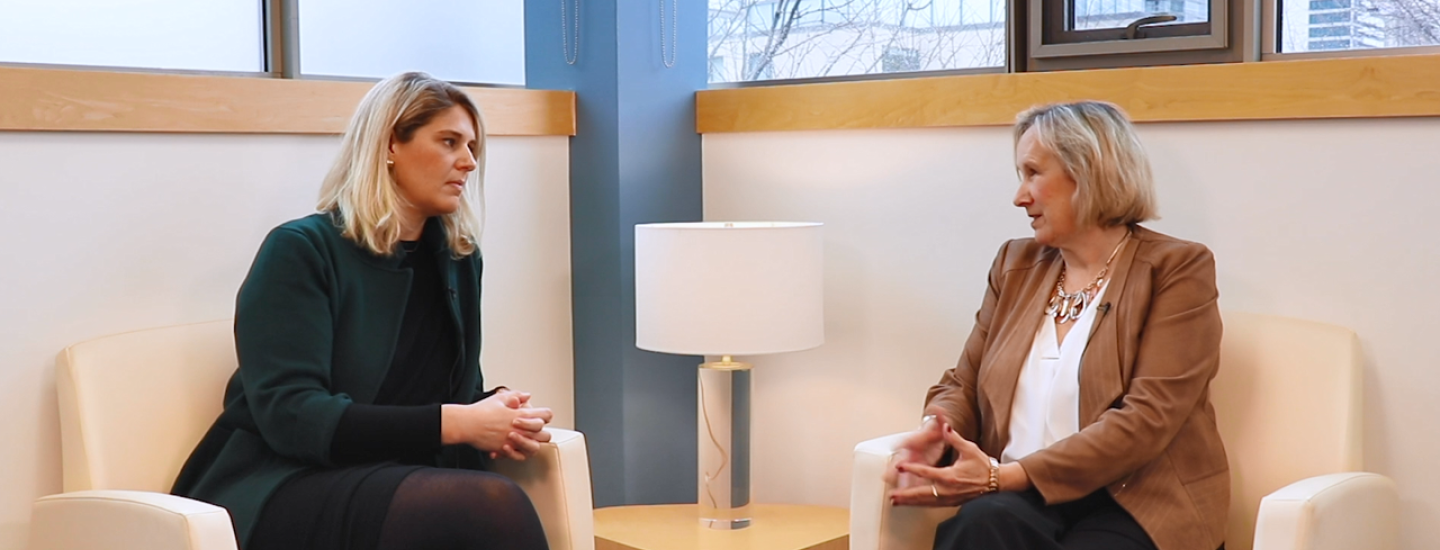
Beat writer’s block with exercises from our Creative Writing Instructors.
Even the most prolific writers can bump up against a case of writer’s block from time to time. Whether you’re a pro or taking the time social distancing has given you to try your hand at getting your stories down on paper for the first time, getting the words flowing can be a challenge.
Instead of waiting for the perfect bolt of inspiration to strike, try using these thought-provoking prompts from three of our online Creative Writing instructors, Amy Jones, Elizabeth Ruth, and Michel Basilieres, to improve your craft, beat writer’s block or discover something new about a character or story you’re working on:
Jones’ Prompts:
1. Go over to your bookshelf, close your eyes, and pick up the first book you touch. Open that book to a random page, read the first full sentence on that page, and use it as the inspiration for a scene.
2. Write about a memory you have of being stuck in the rain.
3. Imagine your character has gone hiking in a forest on a mountainside. There is no one else around. Describe what they hear, see, smell, taste, and/or feel as they pass through different parts of the forest.
4. Write a dialogue between two characters. Character A wants Character B to move in with them, and Character B doesn’t want to. What tactics does Character A use to try to convince them? How does Character B react?
Ruth’s Prompts:
5. This exercise for writing a poem was intended for public transit but can now be modified for walking instead. Carrying a notebook, walk one block, (social distancing of course!) look up, look around, write down one sentence describing something you see or hear or smell. Continue walking another block. Stop, look around, do the same. Repeat for ten blocks. (Poetry and exercise, what could be better!) Finally, take the last line you've written and place it at the top of the page. This will become your opening line. You may also use it at the end, it that repetition seems appropriate. If you prefer your poem to have a fixed form, rather than writing free verse, arrange your lines in couplets.
6. Take a prose fiction story you have already written, but which is not in its final form. Rewrite the same story, only this time change the gender of your protagonist. What, if anything, does that do to your plot? Dialogue? Central Theme? If you made changes to the story, ask yourself why? This exercise is meant to help identify implicit gender bias in fiction.
7. For Creative Non-fiction or Memoir: What are the three defining moments of your life? Everyone has them, though we don't usually speak of them. These will be the experiences, good and/or otherwise, that make you who you are today. It could be something life altering like an immigration experience, a wedding day, birth of a child. It could be something like a sexual assault or the day you found out your parents were getting a divorce. Perhaps a key life moment was the day you decided to come out as LGBT or buy a lottery ticket, or enter medical school? Whatever your three key defining experiences in life, they will be particular to you. Next, look at your list of three and choose the one you feel most uncomfortable about sharing, most private about, and write that moment now. Be vivid and use sensory language.
Basilieres’ prompts:
8. Remember that story your parent or grandparent used to tell over and over and over at every family gathering? That had meaning for them. Tell that story.
9. Use this 19th Century Character generator and start an argument over an inheritance between two of them. I like "Bumbling Tutor Recently Returned from Abroad" vs. "Headstrong Heroine who is having an Affair with the Groundskeeper".
10. Chose a story or novel by your favourite writer, and copy out five continuous pages, by hand - with pen or pencil on paper, no typing. Pay attention to the punctuation. I guarantee you'll learn more than you imagine.
For more inspiration or writing exercises, Ruth also recommends the book Writer’s Gym in which professional writers, Ruth and a handful of other SCS Creative Writing instructors included, share advice and writing prompts.
Amy Jones’ fiction has appeared in Best Canadian Stories and The Journey Prize Stories. Her debut collection of stories, What Boys Like, was the winner of the 2008 Metcalf-Rooke Award and a finalist for the 2010 ReLit Award. Her debut novel, We’re All In This Together (McClelland & Stewart, 2016), won the Northern Lit Award, was featured on Quill & Quire’s "Books of the Year 2016" and the Globe & Mail’s "Best Canadian Fiction of 2016”. Originally from Halifax, Amy now lives in Toronto, where she is working on her second novel.
Jones teaches Creative Writing: Introduction and Writing Short Fiction: Introduction at the School of Continuing Studies
Elizabeth Ruth is the author of three critically acclaimed novels, Matadora, Smoke, and Ten Good Seconds of Silence. Her work has been recognized by the Writer's Trust of Canada Fiction Prize, the Amazon.ca Best First Novel Award, the City of Toronto Book Award, and the One Book One Community Program. Elizabeth is also the author of a novella for adult literacy learners entitled, Love You to Death, and the editor of the anthology, Bent on Writing. In Jan 2014 the CBC named Elizabeth one of the Ten Canadian Women You Need to Read.
Ruth teaches Creative Writing: Introduction and Creative Writing II at the School of Continuing Studies.
Michel Basilieres is the author of the novel Black Bird, a stage play and two CBC radio plays. He is a frequent reviewer for the Toronto Star and has written for the Globe & Mail, Maisoneuve Magazine and The Danforth Review. Black Bird received widespread acclaim and honours, including the Amazon.ca/Books in Canada First Novel Award. It was shortlisted for the Stephen Leacock Medal, the Commonwealth Writer`s Prize, and included on both the Globe & Mail and Maclean`s best of the year lists. It is available in English, French, Dutch and Serbian, and is taught in schools across the country.
Basilieres teaches Creative Writing: Introduction, Writing Short Fiction: Introduction, Creative Writing II, and Writing Short Fiction II at the School of Continuing Studies.













